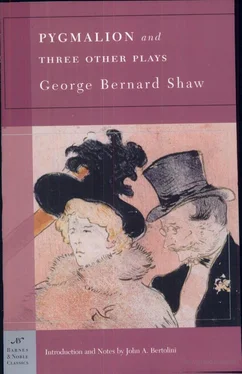Perhaps the most tragic figure of the day is the American President who was once a historian. In those days it became his task to tell us how, after that great war in America which was more clearly than any other war of our time a war for an idea, the conquerors, confronted with a heroic task of reconstruction, turned recreant, and spent fifteen years in abusing their victory under cover of pretending to accomplish the task they were doing what they could to make impossible. Alas! Hegel was right when he said that we learn from history that men never learn anything from history. With what anguish of mind the President sees that we, the new conquerors, forgetting everything we professed to fight for, are sitting down with watering mouths to a good square meal of ten years revenge upon and humiliation of our prostrate foe, can only be guessed by those who know, as he does, how hopeless is remonstrance, and how happy Lincoln was in perishing from the earth before his inspired messages became scraps of paper. He knows well that from the Peace Conference will come, in spite of his utmost, no edict on which he will be able, like Lincoln, to invoke “the considerate judgment of mankind, and the gracious favor of Almighty God.” [284] Quotation from the Emancipation Proclamation, issued by United States President Abraham Lincoln on January I, 1863.
He led his people to destroy the militarism of Zabern; {65} 65 5 (p. 516) to destroy the militarism of Zabern: Zabern, usually spelled Saverne, in northeastern France in the region of Alsace-Lorraine, was the site of conflict between the German military and local citizens that contributed to the motivation for World War I.
and the army they rescued is busy in Cologne imprisoning every German who does not salute a British officer; whilst the Government at home, asked whether it approves, replies that it does not propose even to discontinue this Zabernism when the Peace is concluded, but in effect looks forward to making Germans salute British officers until the end of the world. That is what war makes of men and women. It will wear off; and the worst it threatens is already proving impracticable ; but before the humble and contrite heart [285] Ironic allusion to the Bible, Isaiah 57:15.
ceases to be despised, the President and I, being of the same age, will be dotards. In the meantime there is, for him, another history to write; for me, another comedy to stage. Perhaps, after all, that is what wars are for, and what historians and playwrights are for. If men will not learn until their lessons are written in blood, why, blood they must have, their own for preference.
THE EPHEMERAL THRONES AND THE ETERNAL THEATRE
To the theatre it will not matter. Whatever Bastilles fall, the theatre will stand. Apostolic Hapsburg has collapsed; All Highest Hohenzollern languishes in Holland, threatened with trial on a capital charge of fighting for his country against England; Imperial Romanoff, said to have perished miserably by a more summary method of murder, is perhaps alive or perhaps dead: nobody cares more than if he had been a peasant; the lord of Hellas is level with his lackeys in republican Switzerland; Prime Ministers and Commanders-in-Chief have passed from a brief glory as Solons and Caesars into failure and obscurity {66} 66 6 (p. 517) Apostolic Hapsburg has collapsed;All Highest Hohenzollern languishes in Holland, ... Imperial Romanoff, said to have perished miserably by a more summary method of murder, ... the lord of Hellas is level with his lackeys in republican Switzerland; ... Commanders-in-Chief have passed from a brief glory as Solons and Caesars into failure and obscurity: Hapsburg is the name of the ruling family of Austria that gained ascendancy over much of Europe during the sixteenth century. Hohenzollern is the royal family name of Kaiser Wilhelm II (see note 4, above), who abdicated to Holland on November 9, 1918. Czar Nicholas II of Russia (1868 — 1918), a member of the Romanoff (or Romanov) Russian dynasty and the last czar of Russia, was murdered with all his family by the Bolsheviks during the Russian Revolution. Constantine I, king of Greece (1913-1917, 1920-1922), known as king of the Hellenes, did not support the Allied forces during World War I and consequently was deposed; he sought refuge in Switzerland. The Greek statesman Solon (c.600 B.C.), one of the Seven Wise Men of Greece, was renowned as a wise lawgiver.
as closely on one another’s heels as the descendants of Banquo; [286] In Shakespeare’s Macbeth (act 4, scene 1), when shown the descendants of the murdered Banquo in a vision, Macbeth asks if their line will “stretch out to the crack of doom?”
but Euripides and Aristophanes, Shakespeare and Moliere, Goethe and Ibsen remain fixed in their everlasting seats.
HOW WAR MUZZLES THE DRAMATIC POET
As for myself, why, it may be asked, did I not write two plays about the war instead of two pamphlets on it? The answer is significant. You cannot make war on war and on your neighbor at the same time. War cannot bear the terrible castigation of comedy, the ruthless light of laughter that glares on the stage. When men are heroically dying for their country, it is not the time to show their lovers and wives and fathers and mothers how they are being sacrificed to the blunders of boobies, the cupidity of capitalists, the ambition of conquerors, the electioneering of demagogues, the Pharisaism of patriots, the lusts and lies and rancors and blood-thirsts that love war because it opens their prison doors, and sets them in the thrones of power and popularity. For unless these things are mercilessly exposed they will hide under the mantle of the ideals on the stage just as they do in real life.
And though there may be better things to reveal, it may not, and indeed cannot, be militarily expedient to reveal them whilst the issue is still in the balance. Truth telling is not compatible with the defence of the realm. We are just now reading the revelations of our generals and admirals, unmuzzled at last by the armistice. During the war, General A, in his moving despatches from the field, told how General B had covered himself with deathless glory in such and such a battle. He now tells us that General B came within an ace of losing us the war by disobeying his orders on that occasion, and fighting instead of running away as he ought to have done. An excellent subject for comedy now that the war is over, no doubt; but if General A had let this out at the time, what would have been the effect on General B’s soldiers? And had the stage made known what the Prime Minister and the Secretary of State for War who overruled General A thought of him, and what he thought of them, as now revealed in raging controversy, what would have been the effect on the nation? That is why comedy, though sorely tempted, had to be loyally silent; for the art of the dramatic poet knows no patriotism; recognizes no obligation but truth to natural history; cares not whether Germany or England perish; is ready to cry with Brynhild, “Lass‘uns verderben, lachend zu grunde geh’n” {67} 67 7 (p. 518) “Lass’uns verderben, lachend zu grunde geh‘n”: The English translation is “Laughing let us be destroyed, laughing let us go to our graves”; the quotation is from the ecstatic love duet between Brunnhilde and Siegfried that concludes Richard Wagner’s 1871 opera Siegfried.
sooner than deceive or be deceived; and thus becomes in time of war a greater military danger than poison, steel, or trinitrotoluene. [287] The explosive TNT.
That is why I had to withhold Heartbreak House from the footlights during the war; for the Germans might on any night have turned the last act from play into earnest, and even then might not have waited for their cues. {68} 68 8 (pp. 518-519) That is why I had to withhold Heartbreak House from the footlights during the war;for the Germans might ... not have waited for their cues: In a letter of October 5, 1916, to Sidney and Beatrice Webb (fellow members of the Fabian Society), Shaw recounts his experience with two zeppelins that passed over his country home in Ayot St. Lawrence; the experience was the inspiration for the end of the play. In the letter, Shaw writes: “The sound of the Zepp’s engines was so fine, and its voyage through the stars so enchanting, that I positively caught myself hoping next night that there would be another raid.” Clearly, Shaw transmuted these feelings into Ellie and Hesione’s emotions at the end of the play. Shaw adds the following observation in the letter after he notes the human suffering caused by the bringing down of one of the zeppelins and the gleeful response of some of the onlookers, as well as his own ability to get right to sleep: “Pretty lot of animals we are!”
Читать дальше












